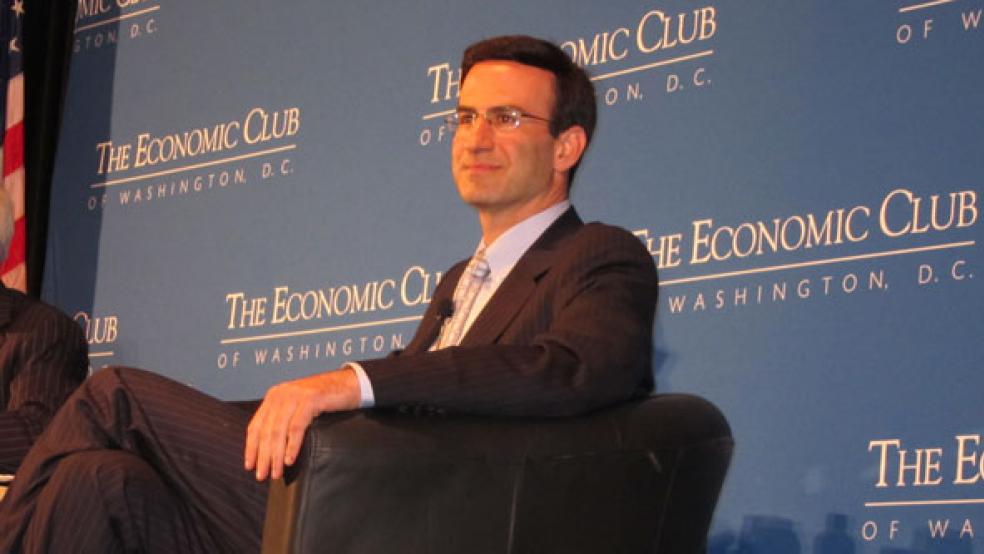Even after passage of health care reform, this year’s legislative agenda is still bulging from financial regulatory reform, a jobs agenda, a new budget and spending bills. Yet the White House appears sure Congress will find time to address yet another critical item before contentious midterm elections: taxes.
White House Budget Director Peter Orszag said Thursday that he was confident Congress would tackle tax provisions that, without action, would expire at the end of the year. "I think before the end of this calendar year this tax question will be resolved," Orszag told a lunch meeting of the Economic Club of Washington, D.C.
Congress must decide whether to preserve current income tax brackets or let them return to previous higher levels. It also must take action on capital gains and the estate tax, both of which are scheduled to change at the end of the year. The estate tax expired at the end of 2009, but will return in 2011 at the much higher rates that applied a decade earlier unless Congress intervenes.
Many policy experts and strategists believe that lawmakers would step in to block some of the changes in order to prevent hikes on taxpayers with a wide range of incomes. Many of these pending changes result from expiration of tax cuts enacted under President George W. Bush in 2001 and 2003.
The estate tax is a pesky but concrete problem: The administration and most Democrats agree that the rates in place in 2009 — 45 percent on assets above $3.5 million — should be put back in place. They must decide whether to make that change retroactive to this year, when, as of now, estate heirs would pay no tax at all.
The administration also has proposed higher income taxes for the wealthy and a higher tax on long-term capital gains and dividends for wealthy taxpayers — 20 percent instead of the 15 percent under current law. David M. Rubenstein, the Economic Club's president and Orszag's interlocutor, tried to get Orszag to confirm to the relatively well-to-do audience that the administration was not contemplating a higher capital gains rate.
"Would you oppose a movement to increase it above 20 percent?" he asked.
"I favor our proposal, which is obviously brilliant and wise," Orszag sidestepped.
Orszag also avoided a question about a value-added tax, a concept that Obama economic adviser Paul Volcker raised earlier this week. Noting that Volcker was not speaking for the administration, Orszag said that ultimate decisions on tax policy should be left to Obama's bipartisan fiscal commission, which will begin its work later this month.
"Look, the whole purpose of the fiscal commission is to allow policymakers to explore various options for addressing our not only medium-term but long-term fiscal policy," he said. "Beyond that I would just let the fiscal commission do its work as it should."
Orszag also defended the new health care law, sometimes feistily, against skepticism that it would save money over the long term.
"I hope we can actually have the debates about the critiques … because I'd like to just go through them and rebut them one by one," Orszag said.
During a question and answer period, Gary Shapiro, president of the Consumer Electronics Association, called the health care legislation recently signed by President Obama “Enronesque in terms of its deception" and "the latest nail in the economic coffin of the United States."
"I'd love to go through each part of it," he said.
"Let's do it," Orszag interrupted. He then took on what he called "urban myths”: charges that the law doesn't count expected increases in Medicare payments to doctors as part of health care costs; that it relies on budget games to appear to pay for its costs; that Congress would bow to political pressure and cancel scheduled cuts in Medicare.
Congress would address the Medicare payments with or without a new health care law, he said, so its cost was irrelevant. Budget games would hide deficits, but this legislation shows increasing deficit reduction, he said. And Congress has historically allowed most Medicare cuts to go into effect, he said.
Most important in terms of controlling costs, Orszag said, the law will test many new approaches, determine what works and implement it to move from a system that pays for quantity to one that pays for quality and efficiency.
"I believe this legislation includes every serious idea that has been put on the table to accomplish that transformation," he said. Shapiro sat and shook his head "no."





